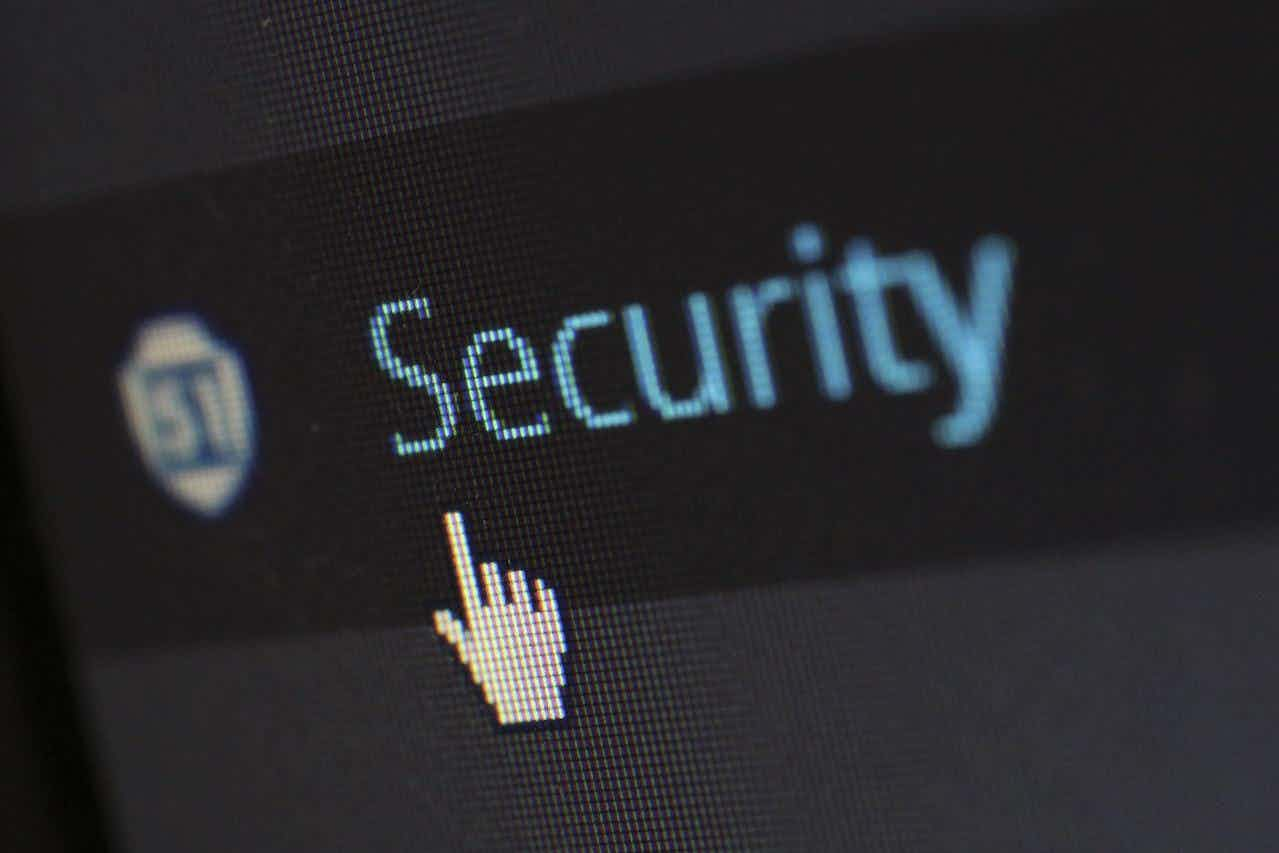Many of us are almost always connected to the internet via our smartphone, tablet, laptop, or personal computer. It allows us to surf our favourite websites, watch videos, and connect with our friends and family through social media. We can order food, a cab, or manage our bank accounts with just a few clicks. The internet has made our lives significantly more straightforward in many respects. But, unfortunately, it does come with some threats. For instance, the data stored in your devices is always vulnerable to theft by cybercriminals.
In addition, malware and viruses can infect and attack your devices, which may cause you to lose important data. The good news is that you can save yourself from online threats by following a handful of simple cybersecurity practices. Once you're done reading this article, you'll be able to secure yourself from online attacks and keep your data safe.
Protect yourself with a VPN
Setting up a virtual private network (VPN) is vital to secure your devices connected to the internet. A VPN prevents information leakage by encrypting data sent over online networks. A VPN also makes it impossible for companies to track your device location. Once you have a good VPN installed, you can surf the internet with complete peace of mind. Using a VPN is crucial in this age of remote working when you might access company data and confidential information from various networks.
Besides PCs and laptops, mobile devices are also regularly attacked by cybercriminals. Using public WiFi also makes it easier for others to intercept your personal data, as public networks are mostly unsecured. So to stay safe and ensure your device security, connect to a private WiFi network or use a VPN.
Many antivirus tools, including Norton, now come with VPN functionality as standard.
Keep your devices secure
Your devices often hold a massive amount of personal information, making security even more crucial. If you don't take proper care in keeping your devices secure, they can become an open book for cybercriminals, and you may become a victim of identity theft. Here are some ways to maintain your online safety.
Update your operating system and internet browser
Many modern operating systems and browser providers are continuously upgrading their security to tackle any cyber threats posed by hackers. Therefore, you should always make sure to keep your operating system updated. These updates allow you to minimise any vulnerabilities in your system. Not doing so means you'll be using an outdated version of your operating system that may have security weaknesses that cybercriminals can exploit.
Update your antivirus apps
Computer viruses are harmful codes that enter your computer and do harm. For example, they might corrupt the files or stop your computer from functioning correctly. Computer viruses spread by replicating and infecting other programs in your device and can sometimes lead to severe problems. Constant multiplication of files and unusual error messages popping on the screen can ultimately cause your system to crash.
The best protection against computer viruses is using good antivirus software that provides you with multi-layered virus and malware protection.
Once installed, it can protect you against several online threats, including malware, worms, viruses, spyware, ransomware, and adware. But it doesn't end here. Just as cybersecurity is evolving, online threats keep changing, too. So ensure you update your antivirus software regularly so that you can stay protected from newer threats and ensure you're always ahead of the game.
While new antivirus tools regularly appear, you can't go wrong sticking to tried and trusted brands like Norton.
Update your firewall software
A firewall is a software barrier between the public internet and your internal network that blocks unauthorised access to your networks and computers. If you're using a Windows or Apple computer, your computer might already have an in-built firewall. It is also present in Android and iOS-based smartphones. You just need to make sure that it is turned on and updated.
Follow password management best practices
You should create separate passwords for different online accounts to ensure better password security. Your passwords should be complicated and difficult to guess. Ideally, they should always combine letters, numbers, and special characters. Many companies now tell you that your passwords must include all of these and upper and lower case letter variations. You can use a secure password generator for this part of the process. Google Chrome has a built-in feature, or using a password manager will do this too. Some password managers will create the password and even hide it from you for additional security! Secondly, whenever possible, turn on two-factor authentication for extra protection.
Many antivirus software tools, including Norton, offer password manager tools as standard within their packages.
Learn how you can detect fraud online
Any information you store on your device or submit when signing up for websites or services is potentially valuable to cybercriminals. This includes personal details like your email address and phone number, as well as things like pictures and videos. On top of this, cybercriminals who can access your information will often be able to find details of your friends and family, too. For example, if your Facebook account gets hacked, criminals can identify your friends and contact them posing as you to get them to share personal information like their bank details.
Criminals can then use the information they have to commit identity theft and fraud. Even if you have a secure device, they can try and take advantage of your lack of knowledge or tech-savvy. For instance, you might get an email or a link that may look normal and secure, but once clicked, it may lead to your device becoming infected or to data theft.
Do the following to ensure you can stay as safe as possible online.
Familiarise yourself with online scams
Many scams aim to get your personal information or gain remote access to your computer. Once you allow them this access, they can infect your computer with malicious software or steal login details and passwords. Here are some of the most common online scams.
Government impersonation schemes
The scammers pretend to represent a government agency, such as HMRC. They make up different stories to make you tell them your personal information or even make payments.
Fake prize scams
You might get an email or a call claiming that you've won a large sum of money in a contest or lottery. They might ask you to pay the cost of "shipping" or a "registration fees" for the prize money to be transferred to you. Once you pay the amount, you'll never hear from the scammers again. But they have your money and payment card details, which they can use to commit further fraud.
Investment scams
The fraudsters will present “proven” and “risk-free” investment strategies to you in this scam. They will also show you fake testimonials to show that they are legit. The ultimate goal of this scam is to make you pay a large sum of money.
Romance scams
This type of scam typically takes place via social media and dating apps. Using a fake identity, the scammer will build an understanding with you. They will share fictional details about themselves and make you share your personal life. Once a certain level of trust is built, they will find a way to ask for financial help mentioning an emergency. Once you pay the sum, your online partner probably won't be seen again. However, some romance scammers manage to get their victims to pay them repeatedly before they realise something is wrong.
Don’t click suspicious links
Remember not to click on suspicious links. You can get these links on any device through any communication channel. These links may also be embedded in adverts on unfamiliar websites. As a general rule, always check the sender's details to verify if the email is from the correct source. Scammers sometimes use names of legitimate brands like PayPal and Facebook to trick you.
If possible, you can cross-check the email's legitimacy and link through a second means of communication. For instance, if you got an email from your courier company regarding the status of your parcel delivery, you can cross-check it on the company's official website. This might take longer, but it is much better than getting your computer hacked.
Don’t respond to unsolicited calls or emails
You are not safe from cybercrimes even if you are offline. Many scammers use phone calls to obtain sensitive data, so you should never pick up an unsolicited or unrecognised call. In addition, remember that your bank will never ask you for personal information like your PIN over the phone.
Scammers often use the name of big corporations like Apple and Amazon to rip off people over the phone. For example, the person or recording would claim that there has been suspicious activity in your Apple iCloud account or something is wrong with your Amazon account. Such scammers aim to get their hands on your account password or credit card number.
Familiarise yourself with phishing
In a phishing attack, the cybercriminal attempts to acquire private data by impersonating someone legitimate. These emails (or text messages, known as smishing) appear to come from a trusted source. This might include your bank, hospital, or an online shopping website. The purpose of these messages is to trick you into clicking a malicious link. People who are not careful enough may even end up providing sensitive information to attackers.
To prevent phishing attacks, the first step is to be wary of any communication that seems strange or out of place. When you find yourself in a situation where you are unsure of the legitimacy of a message, you may use a phishing email scanning service if your email provider or antivirus software doesn't have one built-in.
Make sure that the website is safe
If you plan to give out sensitive information to a website, ensure that the connection to the site you're visiting is secure. The same is true when you try to make a credit card payment using an internet connection. You can check this by verifying the site setting beside the URL in your browser's address bar.
A secure website will start with "https" instead of "http." Your URL address bar will also show a locked padlock if a site is secure. The "s" in https stands for secure and indicates Secure Sockets Layer (SSL) Certificate. This means that all the data passing through your network to the website is encrypted. https ensures a secure connection between your web browsers and the website that you're visiting.
Safety rules are your best tools!
The internet is a wonderful place to learn, earn, enjoy, and connect with your loved ones. However, protecting your personal information and maintaining security are crucial. The expansion of cybercrime has been one of the most concerning themes in the past few years, but following these online security practices can save you from many scams, frauds, and attacks.









